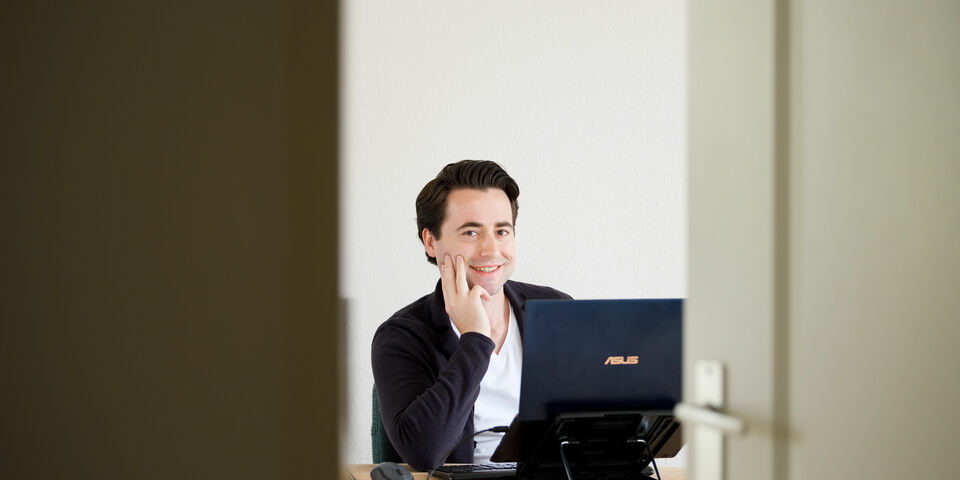But how are you really doing?
Three employees are sitting in their manager's office. They are requesting a pay rise: they don't have enough colleagues to share their workload, and 60- or 70-hour weeks are not uncommon. Their manager understands the problem and comes up with a plan: employee 2 will receive some of the salary of employees 1 and 3.
The manager in this story is former State Secretary Martin van Rijn. Strangely enough, he shares the diagnosis made by the employees (‘we are working too hard’), but he doesn’t act on it. Despite the fact that 75 percent more diplomas are now being issued per member of the academic staff than twenty years ago, Van Rijn would rather push the chips back and forth across the academic poker table: the TUs are employee 2 and they get a pay rise, while the degrees in the humanities and social sciences (employees 1 and 3) are shortchanged. Divide and conquer; with this token gesture, Van Rijn was gambling with the careers of young academics who, without a permanent contract, have no choice but to work even harder.
Here at TU/e we too share the diagnosis ‘we are working too hard,’ but ironically enough we are equally at a loss when it comes to knowing where the answer lies. In Cursor's long-read on work pressure it was said that each department may decide for itself where it seeks the solution, with a remarkable statement made by TU/e policy advisor for Vitality and Sustainable Deployability: “[Staff can] also raise the alarm themselves […]Don't stay trapped in what is often called the 'drama triangle' in which it is always the fault of others.”
Drama triangle
I stumbled over the words ‘drama triangle’. It is evidently a communication model according to which I have just spent the first three paragraphs cowering in the victim role. But in fact the drama triangle sounds more like some place far out at sea where employees who complain too much are sent: just bob about there until you’re ready to do something yourself.
To my way of thinking it’s a dramatic model for this problem. It is almost irresponsible how great a sense of responsible is felt at TU/e. This week alone several wan-faced and flu-ridden PhD candidates have been haunting Atlas because they felt they absolutely couldn’t cancel their meetings or absolutely had to teach. Add to which, they are scientists: people who think that you can solve any problem, people who work on their own island, on their own project.
They have a blind spot for staff who are at risk of a burnout. In the months leading up to a burnout everything still seems to be going well because you are just about managing to keep all the balls in the air. Asking for help would feel like out-and-out defeat, especially at a university. Your whole life you have been assessed individually and have been among the top 1 percent: the academic stream at high school, Bachelor's, Master's, a PhD … at most you asked lecturers or your supervisor for a little help, but you've never been taught to say: 'Let someone else do that' or just 'No thanks'.
Our university reflects the academic culture in which everyone is judged by their results. Acceptance by journals, grants awarded: success stories stick, while rejections don’t count and are swallowed alone. That we should be taking better care of each other is therefore the bare minimum: at times we need to be protected from ourselves.
Think back to the manager’s office and the three employees for a moment. The problem at TU/e is that all four people in the room are scientists. We have too little diversity in the type of people who work here. To frame this in popular management terms: it’s buzzing here with ‘blue’ employees, with an abundance of analytical ability and objectivity. We could do with a couple of new faces who ask how you’re really doing after you’ve worked a 60-hour week.


Discussion